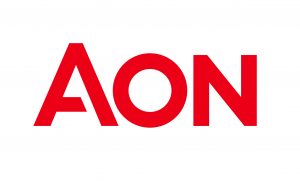Check out our Essential Guide to Cover Letters! Your cover letter is a crucial element in every application. It is the first thing recruiters read and if they are not engaged straight away, the chances are your application will be discarded. Recruiters receive hundreds of applications per job so will become very good at identifying a strong cover letter within the first few sentences.
So what are recruiters looking for in a cover letter? In this article we look at what research you need to be doing and what you need to include in your cover letter to get the recruiters attention (for all the right reasons!).
Company research
The first thing you need to do before you write a cover letter is to research the organisation thoroughly. Having a comprehensive understanding of your chosen company will let the recruiters know that you are sincerely interested in an opportunity with their organisation.
The ‘About Us’ page of any company website is a great place to start and will give you a brief history of the company, their mission statement and their values. Many companies may also have a News or Blog section of their website which will provide you with some information regarding any company developments and also their views on any issues currently facing the wider industry.
A quick Google search can also bring up valuable information, including any mentions in current news stories or industry magazines. It wouldn’t also hurt to follow them on social media, particularly LinkedIn, to keep up to date with what’s going on within their company. Doing your research can generate information which could strengthen your cover letter.
Research the skills employers want
There are lots of skills that graduate employers look for, from soft skills to the more technical, and it’s important that you highlight these skills in your cover letter.
So what skills do graduate recruiters look for? The first place to look for this answer is the job description. A good idea would be to print the job description off, read through it and highlight the different skills that they mention. You can then have the list of skills you need in front of you when you start to write your cover letter.
You can also take a look at our article, what skills graduate recruiters look for, to find out what you need to highlight in your CV and cover letter.
It is essential that you include your skills in your cover letter as you will need to demonstrate to the recruiter that you are qualified for the role you are applying for. However, it is important that you do not simply list your skills as this makes for boring reading. Instead, include them when you are talking about your previous experience.
Apply your research
Once you have gathered a good amount of research about the firm, the job requirements and the skills you need to fulfil such requirements, you will be able to include these in your cover letter.
This should be done subtly and you should not simply copy your research word for word. Instead, tie in your experience and the skills you learnt with how this will help you do the role advertised.
Structuring your cover letter
Before sending your cover letter, you should find out the name of the person to address your application to – an application addressed to Sir/Madam or otherwise is not likely to generate much interest.
If you can, find out who will be reading your application – it will either be a HR manager, the head of recruitment or the head of the department. Sometimes, this information will be available in the job description or on the company’s website, but sometimes you might have to do some more research. LinkedIn is a good start, as this will at least give you a name and a job title. If you cannot find anything online, then the best thing to do in this case is to ring the company and enquire. In this case, you should be prepared to coherently and concisely portray the purpose of your enquiry.
Take your time
Once you have finished your cover letter, try to leave it overnight or at least for a few hours before reading it over with fresh eyes. When re-reading, ask yourself the following questions:
- Does it communicate what you need to say clearly and concisely?

- Are there sections that are hard to follow? If so, try to simplify your language, use shorter sentences or remove that section completely.
- Do you sound confident? Enthusiastic about the company? Do you sound like you are inspired by the role?
- If you were to substitute the company’s name with a competitor organisation, would it read the same? If so, you need to put more effort into detailing why you want this role at this company.
Once you are personally happy with your cover letter, ask a careers adviser or, if possible, someone working in the sector you are applying for, to read it and give you any necessary feedback.
Follow up
Once you have submitted your cover letter, get in touch about a week later to confirm that they have received your application and find out if they have had time to consider it. Begin the call by introducing yourself and letting them know the reason for your call, and then ask to speak to the person you addressed the letter to. Keep in mind that actuarial professionals are often extremely busy so don’t be discouraged if your enquiry cannot be immediately addressed.
Tips for writing speculative cover letters
Now we have covered generic cover letters, we are going to briefly touch upon speculative cover letters.
A speculative application is where you send in your CV and Cover Letter when there is no explicit role advertised, and you are merely speculating as to whether there may be a role at the company for you. You may want to send these in when you are looking for a role in a smaller company or a niche industry that may not advertise opportunities as they only take in a small number of recruits. This does not mean that these companies do not have opportunities for you; they just require a different approach to access these valuable and diverse roles.
As they are not expecting to hear from you, you will need to make sure your application is worth reading. Therefore, your cover letter is particularly important in a speculative application. However, they are slightly trickier to write as you are not selling yourself for a particular role; rather you are selling yourself as the perfect fit for the company you are applying to.
Your speculative cover letter should be just over half a page of A4 and no longer. Explain why you are writing to them and be as specific as possible as to what sort of role you are looking for. You should also explain why you have chosen that company as a potential employer.
Outline your skills and what you can bring to the organisation; cover a wide range of skills and qualifications that show that you are an all-rounder. You should also demonstrate that you understand the needs of the company, and that you can fit into the wider picture.
You can read more about speculative cover letters here.
Hopefully this has given you a good idea of the purpose of the cover letter, how to approach writing one and some tips if you ever find yourself writing a speculative application. Good luck!





